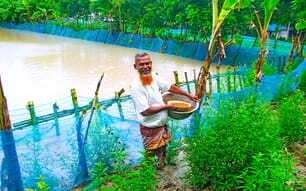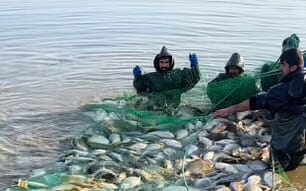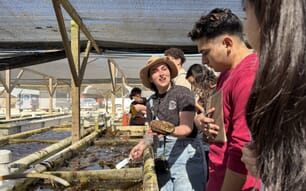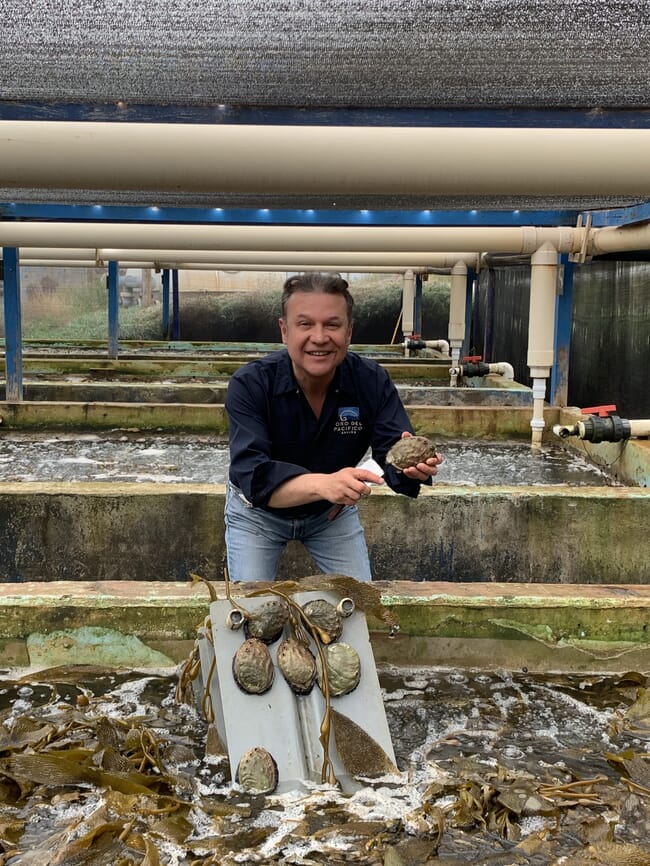
© Abulones Cultivados
Can you tell us about your career?
I studied oceanography and my professional career started as a technical researcher at the Oceanological Research Institute of the Autonomous University of Baja California. I worked on restocking wild abalone populations and developing farming methods and techniques for them. I moved on to the commercial side of aquaculture when I co-founded Abulones Cultivados, back in 1992.
I had the opportunity to move to Chile, first on a commercial abalone project of a salmon farming company and then as an affiliated researcher at the University of Los Lagos and Centro i-mar, where I spent eight years at the forefront of developing and optimising abalone, seaweed and mussel culture systems, in addition to the restoration of the Chilean abalone (Concholepas concholepas). I also enrolled as director of the Technology Transfer Unit of the university, being involved in valuations and transfer of technologies to companies.
During this time (2006 to 2009), I served as the president of the International Abalone Society, a position that united me with renowned scientists, entrepreneurs, fishermen, government officials, managers and marketers from over 20 countries. I then moved back to Mexico to pursue marine fish farming, most notably of yellowtail kingfish (Seriola lalandi). Then I was offered the opportunity to work as the director of fisheries for the State of Baja California, where I promoted the restoration of abalone and sea urchin populations, collaborating with the fishing and local communities.
During all of these years, I have also had the pleasure to work as a consultant for several companies and visit many countries.
Why did you decide to embark on a career in aquaculture?
Since childhood, my unwavering passion for the ocean and its rich marine life has been a driving force in my life. One vivid memory stands out: as a child, I stood mesmerised on the shores of La Jolla, California, watching scuba divers prepare to explore the oceans depths. Witnessing their graceful descent into the underwater world left an indelible mark on me, sparking a profound desire to immerse myself in activities that fostered a deeper connection to the sea. Later on, while in the oceanography school, I discovered aquaculture and since then I knew that I wanted to commit my life to the farming of marine species.
Can you tell us about your farm?
Abalunes Cultivados, which is 280 km south of the US border, is the biggest abalone farm in Mexico. It is a full cycle production operation, in a seawater flow-through system. We farm the red abalone (Haliotis rufescens). We have 105 concrete grow-out tanks and our own hatchery, and sell abalone, every week of the year, for the Mexican and US markets.
We chose red abalone because, back then, it was the most researched species locally. We could find sexually mature specimens year-round and also because it is the species that is best adapted to the temperatures of our location. We sell fresh product but also canned, both have very good loyal customers
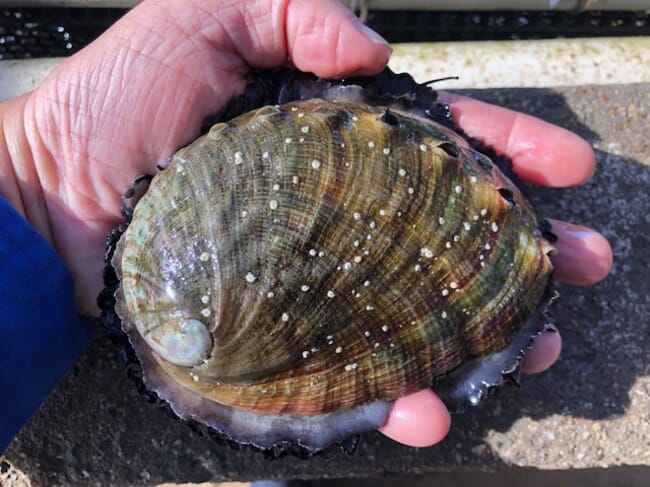
© Abulones Cultivados
What are some of the challenges you have faced?
Aquaculture is a complex activity that requires knowledge and, in some cases, mastery of many disciplines. This is especially true when we look back a few decades ago, when pioneering in the world of aquaculture meant discovering and learning much about the biology of marine species and developing significant technology for their efficient and economically viable cultivation.
In the early stages, in the absence of specialists, one attempted to know and do everything in aquaculture. However, over time, I have learned the immense value of assembling a high-level team and always seeking the guidance of the best specialists in the field. Yet, I firmly believe in the philosophy imparted by one of my mentors long ago, that to be a good aquaculturist, one must dive headfirst into the water. In other words, you must immerse yourself fully in the field.
Moreover, engaging in aquaculture in developing countries or remote locations presents a double challenge. Aquaculture is inherently a risk management activity, and as we know, seawater corrodes everything. Coupled with poor electricity provision and a lack of infrastructure such as docks and reliable supply services, it necessitates greater investments and/or adaptation of technology. Therefore, one must be highly creative and proactive, ensuring backups for essential equipment, ensuring their quality, and deciding where it is truly worthwhile to invest given limited resources.
It’s about having backups for backups and knowing other areas that can be overlooked. Additionally, one must learn to be a good leader, as we often manage low skilled personnel. Motivation and accountability ensure efficiency and viability in the business.
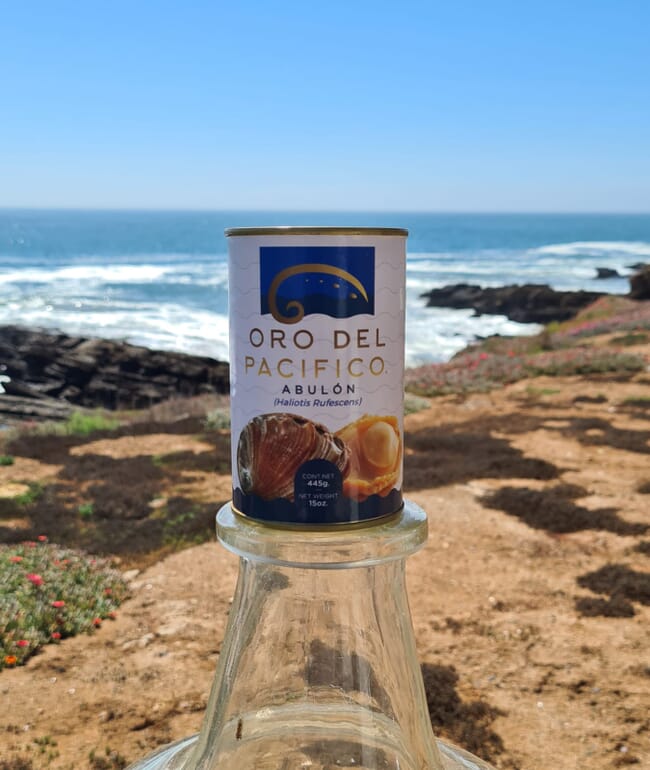
© Abalunes Cultivados
What aquacultural achievement are you most proud of to date?
I take great pride in having contributed to the development of aquaculture, particularly as an entrepreneur, risking private capital in an industry where there is little room for error or wastage of time and money. I believe that we should erect a monument to all those investors who have invested in and believed in aquaculture. They have too often been overlooked, even though many have taken risks and struggled to survive. My involvement in the abalone farming industry and my role in a financially sustainable and profitable enterprise are significant sources of pride for me.
Furthermore, I am deeply proud of the contributions made by the now-extinct companies Baja Seas and Ocean Baja Labs in advancing technological innovation, particularly in the establishment of a state-of-the-art juvenile hatchery and grow out for Seriola cultivation. Our collective efforts have propelled the industry forward.
Finally, it fills me with immense pride to have played a pivotal role in effecting change within the rural communities where we have implemented our aquaculture projects. Observing the development of our staff’s skills and how their salary levels are improving compared to other occupations in the area, such as agriculture or fishing, is truly rewarding. This progress not only boosts their self-esteem and dignity but also contributes to the overall growth of the community.
What is your advice to other farmers?
If I have to prioritise, I would say these three:
1. Take active participation on the farm: getting your hands dirty and demonstrating commitment are essential. Remaining open-minded and receptive to new knowledge is equally vital. These actions are crucial steps toward success in any aquaculture endeavour.
2. Hire individuals with exceptional aquaculture skills and great values. This enables you to enjoy your everyday work.
3. Seek guidance from those who have already achieved what you are trying to achieve: it will save you a significant amount of money.
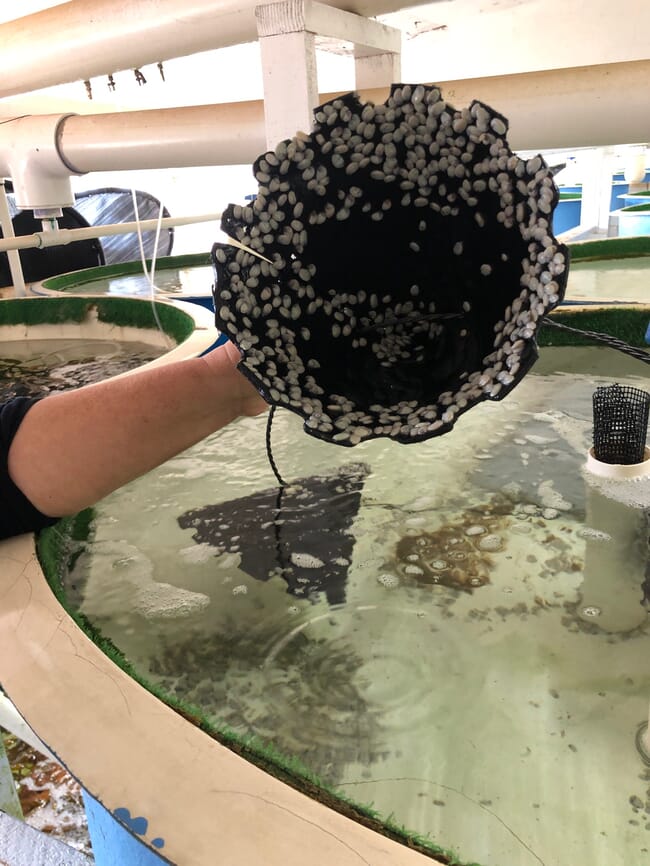
© Abulones Cultivados
What is your take on factors such as disease management, genetics, feed and the environment?
Undoubtedly, these are the key issues in aquaculture today, and they must be addressed with the guidance of professionals who have dedicated their lives to these matters. I always strive to engage the best experts in these areas, and its remarkable how knowledge has advanced in the past decade. Therefore, I am constantly learning and seeking advice from the top international specialists in this field. Moreover, it is imperative for Mexico to produce our own high quality commercial feed to make marine fish farming more viable and to foster its growth.
Aquaculture is directly related to the wellbeing of our environment, as we all know. In our farm we take special care of our surroundings, especially because our water has to be in excellent conditions for our operation.
What do you envision for yourself, your projects and in general for aquaculture in the future?
Taking our Abulones Cultivados farm to a higher production level, and ensuring the best quality product, so that Mexican abalone is recognised as the best in the world. That’s why we name our product Oro del Pacifico (Pacific Gold).
As a do-er with a passion for aquaculture, I also want to be involved in farming marine fish species, such Seriola or bluefin tuna – that would be the ultimate challenge for me.
I also will continue teaching in aquaculture, in remote low-income communities, where economic development is needed – perhaps bringing terrestrial farmers into some sort of aquaculture business. Those are some of my dreams.
I hope that society and government agencies work together to promote aquaculture. I would like to see the general promotion of the activity by speeding up the paperwork process, and develop government innovation programmes for aquaculture, with appropriate seed capital and interest rates.


